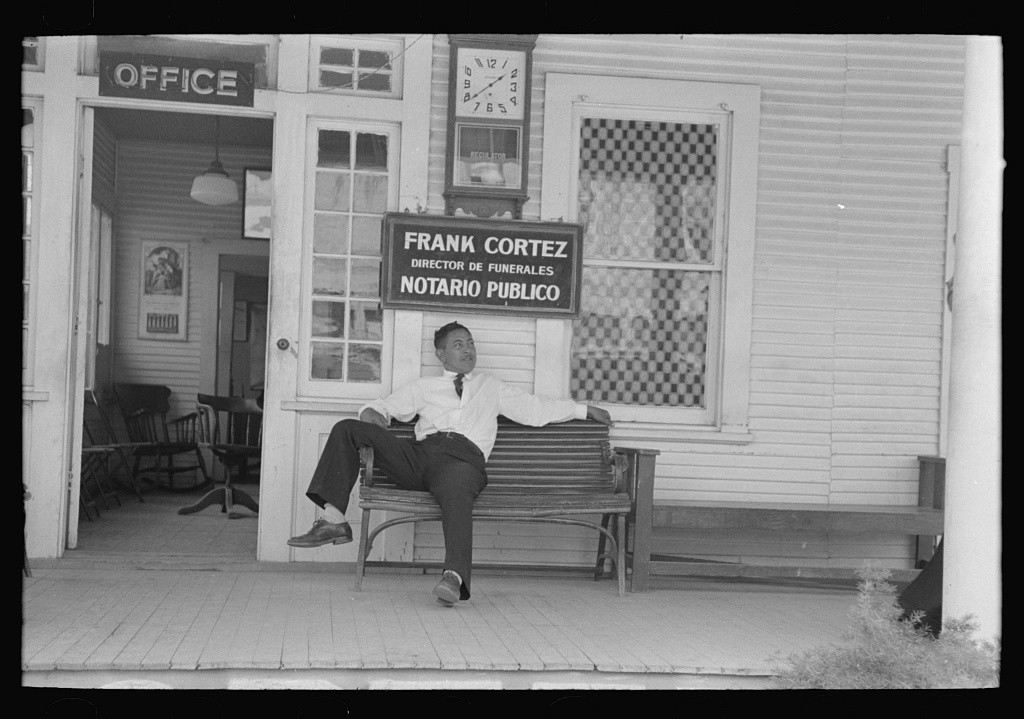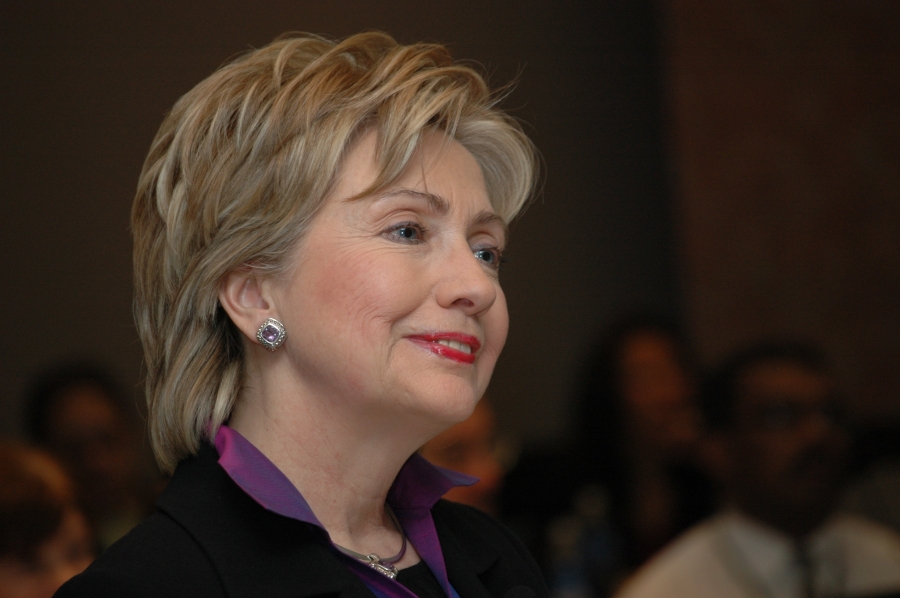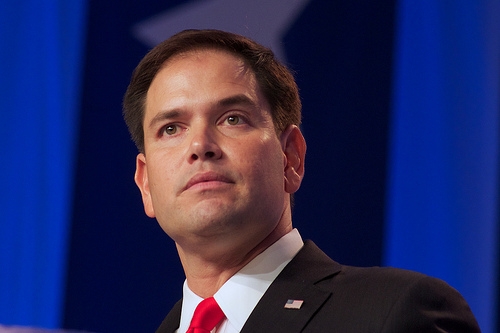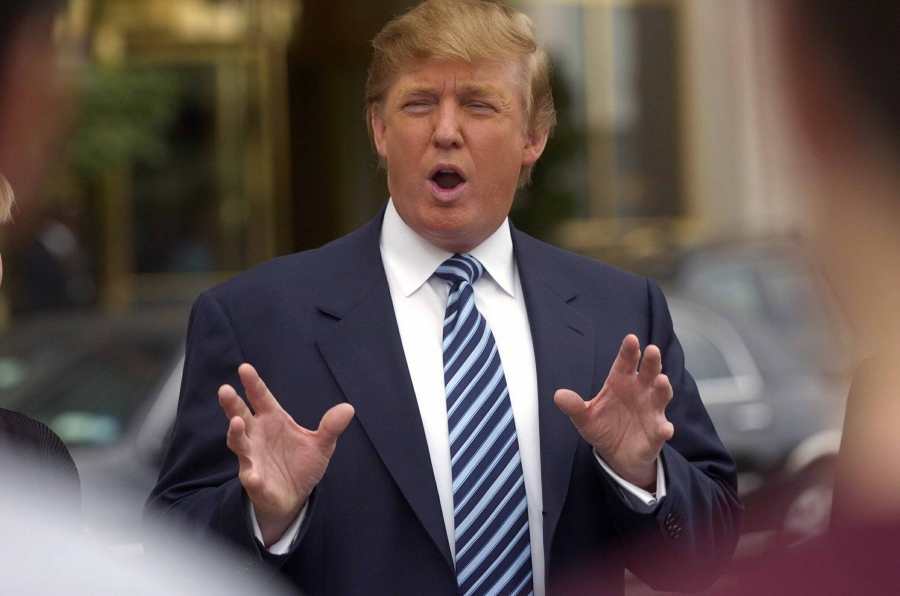Latinos are receiving increasing attention in American politics. Candidates and their campaigns must decide how best to reach out to this growing community. Trump has chosen to double-down on anti-Mexican rhetoric, but other candidates have chosen another language altogether. Democrats and Republicans alike have chosen to address Latinas/os in Spanish. Hillary Clinton tweeted how to say “Go Hillary in Spanish.” With an obvious slant toward a Mexican dialect, the first option was “Oralé Hillary.” She has also been criticized for her facebook post of three pictures with the caption “¡Cómo pasa el tiempo!” Her post came on a Thursday, participating in “throwback Thursday” or “#retrojueves.” Her use of Spanish was seen as a crass grab at instead of meaningful outreach to the Latina/o community.
Between Paleoliberalism and Neoliberalism: Latinos’ Past and Future
Judging by the changing prefixes—paleo, neo, new paleo—it would seem that American liberalism is in flux. In her most recent and most touted economic address, Hillary Clinton has returned to the liberal belief in government intervention, probably pushed there by Bernie Sanders. Her speech has received attention but not necessarily celebration. She has been criticized for not addressing income inequality with redistribution policies. In a very smart essay, Matthew Yglesias called Clinton a “new paleoliberal.” That is, she has revived some very important beliefs of a pre-Reagan era that saw its highpoint between 1963-1968 in the LBJ administration. Namely, Clinton believes that government can be part of the solution and the market has been part of the larger problem of increasing economic inequality in the post-1970s U.S. David Brooks of the New York Times wrote that Clinton’s belief in government solutions was “epistemologically naïve” and politically unwise. Brooks reasons that voters no longer believe that the government can solve the big problems the nation is facing. This is true, in part. Americans’ optimism in the government has waned since the 1970s, with cynicism spread by both the left and the right.
Clinton’s renewed optimism in government backed solutions to systemic problems is important for the Latina/o community because in a poll conducted for UNIVISION Noticias she leads the presidential pack in the Latino community. Clinton would receive 64 percent of the general Latino vote, while the closest Republican hopeful, Jeb Bush, would only receive 27 percent. Among Latino Democrats, she has 73% of the vote, while her contenders are largely unknown (68 percent did not know or had not formed an opinion of Bernie Sanders and 74 percent did not know or had not formed an opinion of Martin O’Malley).
The Republicans’ Latino Problem
Republicans’ have a Latino problem. Their anti-Mexican rhetoric isn’t working out. Donald Trump has been dumped by NBC, UNIVISION, and Macy’s for his anti-Mexican statements. Their commentators haven’t helped much either. Some have indicated that this is due to Latinos growing economic and political influence. Nonetheless, the ever-growing Republican presidential field features the first two Latino presidential candidates in U.S. history, Texas senator Ted Cruz and Florida Senator Marco Rubio. Both are Cuban and both espouse a particular brand of American exceptionalism and anti-federal government policy solutions.
When they tell their families’ stories, however, they are not aimed at Latina/o families. Instead, their immigrant narrative is a repetition of an idealized nineteenth century story that does not fit into the late twentieth century context in which it unraveled. In their recounting, their families seem more like German or Italian families than the Cuban diaspora. Their families never passed by the Statue of Liberty or entered Ellis Island, but they came to the U.S. for the American dream, for the chance to succeed and experience a type of freedom unequaled anywhere in the world. At first their families were poor, oppressed, and downtrodden but they worked hard and sacrificed. Then, they succeeded—both economically and in assimilating. The only particularity of the Cuban experience that Cruz and Rubio mention is that their families fled communism. For them, communism—of which American liberalism is just a step away, brought closer by Obama’s near Marxism—is any form of government intervention. Big government, whether Castro’s communism or Roosevelt’s New Deal—robbed their families of opportunity, oppressed their communities, and sapped individual initiative. Their families and community witnessed the horrors of government run amok and that’s why they don’t want to see it in the Land of the Free and Home of the Brave. That’s why they are anti-liberal crusaders—they’ve seen the destruction that liberalism can bring.
Donald Trump’s Delusional Free Market
Donald Trump announced his presidential run on a strange anti-Mexican platform to great applause. In an hour long, rambling speech Trump laid out various explanations for American social, political, and economic decline. The problem with America: Mexican rapists and bad (political) cheerleaders. If it wasn’t for evil, violent Mexicans and Obama, the U.S. would be as strong as it (n)ever was.
Trump’s announcement was longwinded and incoherent. The only semi-constant theme through the speech is that government is inefficient and the market is efficient. This is a tried-and-true slogan of the Reagan Revolution; namely, that the freer the markets the freer the people and that government is the problem, not the solution. In fact, politics and politicians will only continue to hurt the nation. There are no quick policy fixes, but there is a great white hope: Trump himself. He’s a billionaire, a businessmen, and a red-blooded American. By his own bootstraps, but mainly his $9 billion billfold, he’ll rebuild America and put it back to work.





